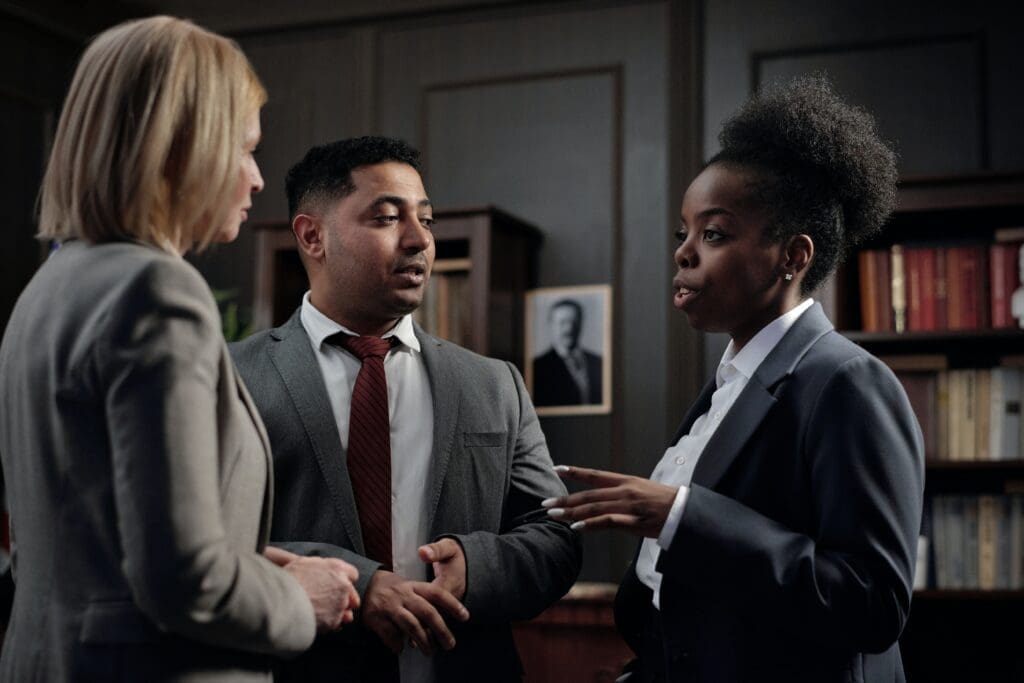Divorce is a personal and often emotionally charged experience. While it can be seen as adversarial, many couples seek options that avoid contentious litigation. In the United States, there are over 20,000 collaborative lawyers guiding clients through these alternative divorce processes.
What is Collaborative Law?
Collaborative law is found in divorce and other aspects of family law. This legal process allows couples to work with their lawyers and other professionals to avoid court. With that, they can achieve a settlement that best meets the specific needs of both parties and their children.
This voluntary process begins when the couple signs a participation agreement. This contract binds them to the process and disqualifies their respective lawyers’ rights to represent them in any type of litigation.
The collaborative process can also be used for disputes between parents. It can also be used to create pre- and post-marital contracts. The traditional method of drawing up marital agreements is oppositional. However, some couples prefer to have these documents created in a mutually agreeable process.
One unique aspect of collaborative law is that the parties cannot use or threaten to use the court system. If a party threatens a lawsuit, the collaborative law process terminates. As a result, the lawyers cannot further participate in the dispute.
Collaborative law processes also have the added benefit of being cost-efficient for the involved parties. The legal process is a unique and innovative approach to divorce.
Collaborative lawyers in this setting serve as advocates for their clients. They encourage communication between spouses, assist in negotiations and provide legal guidance throughout the process.
A collaborative divorce lawyer also works closely with other professionals, such as financial experts and divorce coaches. Together, they can ensure that their clients receive comprehensive support.
What sets the collaborative process apart is the commitment to avoiding litigation. Collaborative lawyers help couples navigate divorce’s emotional and legal complexities with respect and dignity.
What Is a No-Contest Divorce?
When a couple unanimously agrees on all aspects of their divorce, they can opt for a no-contest divorce. In these cases, collaborative lawyers make sure that all necessary legal documents are accurately prepared. They also assist in creating a divorce agreement that reflects the mutually agreed-upon terms.
With their experience in family law, a collaborative lawyer can help clients navigate the complexities of the necessary paperwork. They are here to protect their client’s rights and interests throughout the process.
Collaborative lawyers can be valuable in cases involving:
- A division of assets
- Child custody
- Support arrangements

Can They Assist With Mediation?
Many times, mediation involves the presence of a neutral third party. During this process, a mediator assists divorcing couples in reaching mutual agreements.
Collaborative lawyers play an important role in preparing their clients for mediation sessions. They educate their clients on their legal rights and responsibilities.
Additionally, a collaborative lawyer will serve as a legal advisor throughout the mediation process. In all cases, they want to make sure that any agreements align with their client’s best interests.
When the mediation is successful, the collaborative lawyer formalizes these agreements into legally binding documents. They will also make sure that negotiated terms are enforceable.
What Happens in Divorce Arbitration?
Divorce arbitration is another option for couples who want to avoid going to court. In this case, the arbitrator makes binding decisions on contested issues.
Once again, the collaborative attorney helps prepare their clients for arbitration. They assist in:
- Presenting their client’s case
- Gathering and presenting evidence
- Advocating for their client’s position during arbitration proceedings
While the arbitrator makes the final decisions, the collaborative lawyer keeps the process fair and equitable. With this approach, couples can resolve disputes while maintaining more control over the process than traditional litigation.
For divorces that don’t require court intervention, collaborative lawyers are highly skilled professionals who can help in the process. They can guide couples through various divorce pathways, including no-contest divorce, divorce mediation, and divorce arbitration. In turn, they can help their clients reach amicable, respectful and legally sound solutions to their marriage dissolution.
Reach Out To a Pennsylvania Divorce Attorney
Find a skilled divorce attorney to assist with spousal support, child custody and other issues. Contact the Law Office of Joanne Kleiner at 215-886-1266. Feel free to schedule a consultation to learn more about the options for your divorce case.